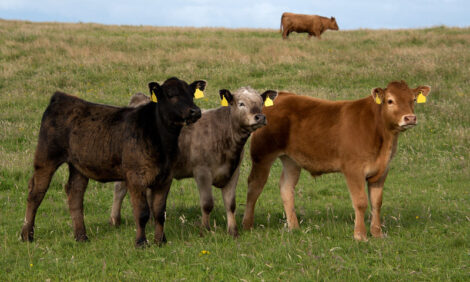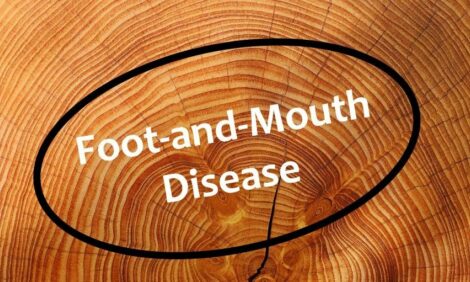



Sustainability Initiatives in the Irish Livestock Sector
Great steps are being taken to reduce livestock emissions across Ireland such as farm benchmarking and using carbon navigator tools, says Padraig Brennan from the Irish Food Board (Bord Bia).Environmental sustainability continues to grow in importance as a strategic business issue among leading food and drink customers globally.
Research undertaken by Bord Bia in 2012 clearly showed that sustainability is now a core part of the commercial strategies for many of them. This is further evidenced by the increasing focus on the Dow Jones Sustainability Index, which ranks the world’s top 2,500 companies in terms of their sustainability performance.
What is meant by the term sustainability varies depending on the market or customer in question. For some, it is about food safety, traceability and quality; for others it is about emissions or resource efficiency; while others believe the focus is on issues such as animal welfare.
Most leading multinational customers have set out long-term targets to enhance the sustainability of their supply chain.
For many, the driving factor behind these targets is the security of their supply chain over the medium to longer term. Critically, many are seeking solutions to help them achieve these targets and increasingly recognise the role that their suppliers will play in their delivery.
This presents considerable opportunities - for those suppliers who proactively develop initiatives in the areas such as greenhouse gases, water, welfare and biodiversity - to develop stronger business relationships with them. These customers will be critical to the Irish food sector as it seeks to increase the value of its exports from €8bn to €12bn in line with the ambitions set out in Food Harvest 2020*.
Building the proof
It is with this in mind that Bord Bia launched the ‘Origin Green’ Sustainability Development Programme (www.origingreen.ie) in June 2012. Origin Green is designed to provide a platform at both farm and manufacturing level to demonstrate our commitment to producing as sustainably as possible and deliver further improvement over time, while also helping to communicate our actions in the marketplace.
At farm level, Origin Green incorporates the work that Bord Bia and Teagasc have been doing to build sustainability measures into Bord Bia’s Beef and Lamb Quality Assurance Scheme (BLQAS).
Currently, around 32,000 beef farmers participate in the BLQAS, which accounts for almost 80% of Ireland’s beef production. Each farm is audited every 18 months across areas ranging from traceability, medicines, animal welfare, health and safety and environmental issues. Since May 2011 participating farmers also take part in a sustainability assessment of their enterprise.
On-farm sustainability assessment
In early 2011, Bord Bia, in partnership with Teagasc, received PAS2050 accreditation from The Carbon Trust in the United Kingdom for our methodology and model for assessing the carbon footprint of Irish beef production. Since May 2011, Bord Bia has been gathering production-based information on participating farms to allow us to assess their emissions performance. The type of information being collected is as follows
• Level of beef production
• Length of time animals are outdoors
• Details on feeds consumed by animals
• Chemical fertilizer usage
• Manure management
This information is combined with a livestock profile for each farm from the Department of Agriculture’s AIM (Animal Identification and Movement) database to provide an indicative performance for each farm. This allows farms to be compared to others in a similar production system and highlight areas offering potential for
improvement.
This forms the initial feedback that participating farmers receive. To date, almost 40,000 farmers have taken part in this assessment.
The next stage of the beef sustainability programme has been introduced over recent months. This focuses on providing practical feedback and advice to farmers on what they can do to improve their environmental performance and, at the same time, improve the efficiency of the farm. This takes the form of the Teagasc/Bord Bia Farm Carbon Navigator tool.
The areas being assessed in the tool are as follows:
• Grazing season
• Age at first calving
• Calving interval
• Live weight performance
• Nitrogen fertilizer use
• Manure management
The information collected on-farm by Bord Bia helps us create a picture for the current farm performance. The tool then allows the farmer, in conjunction with their advisor, to set targets for each measure to see what impact it could have on greenhouse gas emissions and the economic performance of the farm.
Carbon Navigator Tool
A similar approach is being adopted for the Irish dairy sector as part of a National Sustainability Scheme currently being finalised.
In 2012, Bord Bia and Teagasc received PAS2050 accreditation for a methodology and model to assess the emissions associated with Irish milk production following a pilot project with a leading milk processor. A dairy Carbon Navigator tool similar to that being implemented in beef has also been developed and will be rolled out during the second half of 2013.
Other sustainability areas
The Sustainability agenda at both a policy and market level incorporates more than greenhouse gas emissions. Recognising this fact, Bord Bia is introducing measures to examine areas such as biodiversity and water on Irish farms. These measures focus initially on gathering information with regard to the following:
• Hedgerow management
• Tree planting
• Wildlife habitats
• Areas of conservation
• Rainwater collection, and
• Water conservation.
Information gathered here will enable Bord Bia to work closely with Teagasc, and other relevant organisations, to provide clear guidance and advice to farmers on how they can further enhance their performance in these areas.
Practical benefits from focusing on sustainability
The business case for measuring environmental performance on livestock farms is compelling as measures that enhance the economic performance of a farm typically also deliver economic benefits through lower costs of production.
At farm level, sustainability comes down to minimising the amount of resources (e.g., electricity, feed, water, etc.) used to produce a kg of output. Results from our work to date shows that while Irish farmers on average compare very favourably by European and International standards, there is significant variation evident across farms.
This variation offers valuable learnings, as the practices adopted by the best-performing farms can provide practical guidance for other farms.
At an industry level, sustainability also offers potential benefits. Being able to demonstrate the credentials and the commitment of the Irish livestock sector to produce in a sustainable manner allows exporters highlight how Ireland offers a source of food products that will help their customers achieve their own sustainability targets.
This in turn can help build stronger relationships with key customers and over time secure an improved market position.
Improving performance
Irish livestock production has strong sustainability credentials. The introduction of sustainability measures across beef and dairy allows Ireland to take a lead in the drive to produce sustainably, while also helping farmers identify ways of improving the environmental and economic performance of their enterprises.
While this work will continue to evolve as science develops further, the focus will continue to be on providing practical feedback and advice to farmers to help them improve their performance from both an environmental and economic perspective.
For more information from Teagasc Research - Click Here

.JPG)

